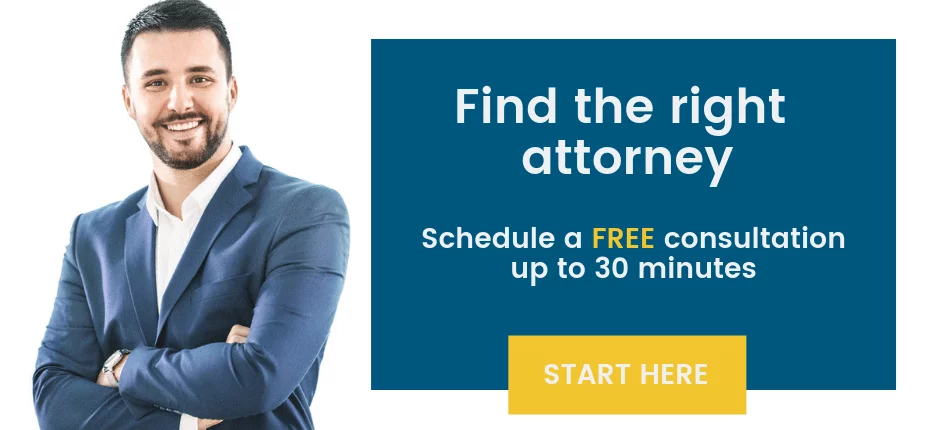How to Find the Best Bankruptcy Attorney in Los Angeles
The decision to finally file for bankruptcy can be tough, especially if you’re handling it on your own. Read the details here about the process and how finding a bankruptcy attorney in Los Angeles can help!
Introduction
No one looks forward to the prospect of declaring bankruptcy. That’s why most people try to budget and save in the first place. But when life gets in the way, times are tough, and the economy is struggling, it’s easy to get into debt even if you have the best of intentions. And the further you are in debt, the harder it is to get out.
Severe debt is extremely common in the United States. In fact, the average American owes over $8,000 at any given time. Add on medical bills, mortgages, and other life necessities and it can become downright impossible to escape. In fact, carrying a lot of debt might even eventually damage your credit so severely that you can’t rent a place to live, buy a vehicle, or even afford to survive.
Depending on the specifics of your case, bankruptcy might help you to regain control over your finances. However, it is extremely important that you know what you’re getting into before you move forward.
We’ll tell you what you need to know and how to find the best bankruptcy attorney in Los Angeles right now.
What is Bankruptcy?
Bankruptcy is a last-resort legal proceeding that allows you to declare your inability to pay your debts to the courts. If approved, this results in debtor’s relief. This usually means forgiveness of one or more debts and/or legal sanctions that prevent creditors from suing you or harassing you for money after the claim is approved.
Types of Bankruptcy
- Chapter 7 bankruptcy is the most common. Debtors are required to give up or sell their own property in order to pay off debts according to limits set by the state. The debtor may be allowed to sell the property themselves, or the courts may seize said property and liquidate them on the behalf of creditors. Some assets, including the debtor’s main residential home, may be exempt.
- Chapter 11 bankruptcy is only used when someone has extremely high debts, either as an individual or as a business. Someone who borrows $100,000 to start a business, but later fails and loses everything, would probably need to declare bankruptcy under this statute. Debtors who choose to file this type of bankruptcy may be allowed to keep certain high-value properties, but will also be required to adhere to a payment plan specified by the courts.
- Chapter 12 bankruptcy is designed specifically for family farmers and family fishermen who rely on natural resources to make a living. Debtors must be involved in a commercial fishing operation, in receipt of regular income, and able to prove their debts are connected to the industry in some way.
- Chapter 13 bankruptcy is very similar to Chapter 7. The main difference is that it does not absolve debts completely. Instead, the debtor is required to present and adhere to a repayment plan for up to five years after the claim is approved. This may be ideal when someone has the ability to pay, or will soon have the ability to pay, but is out of time for making other arrangements.
Disadvantages
Bankruptcy is not a “get out of jail free” card. In order for your declaration to be approved, you must be able to show an inability to pay and/or how hardship limits your ability to pay. If you still have liquefiable assets, money in savings, or a decent amount of income, other alternatives may be more suitable. On the other hand, if you only make $30,000 per year and you are saddled with extreme debt as a result of medical illness that limits your ability to pay, you may qualify.
While declaring insolvency can be a good way to hit the reset button, it also comes with several distinct disadvantages. The most considerable of these is the fact that your credit score will almost immediately drop dramatically. This informs creditors that you failed in your ability to pay other debts in the past. In some cases, your credit report might even reflect that you were forced to seek out insolvency. It may be difficult to access credit for years after you file.
It should also be noted that some debts cannot be discharged during bankruptcy regardless of inability to pay or level of hardship. This generally includes student loans, child support, and spousal support. Declaring bankruptcy might help you lessen the financial load, but you cannot use it to escape these debts altogether.
Is Bankruptcy Right for Me?
Remember that bankruptcy is typically considered a last resort – it isn’t easy, and it certainly isn’t an effective method for escaping your bills. Still, it can help you start over if you’ve managed to get so far into debt you’ll never escape.
You should seek legal advice about bankruptcy if:
- You’ve struggled with debt for a long time
- You can’t see any way to repay your debts
- You’re so far in debt you’ll never get out
- You are about to lose your home to debt
- Many of your debts are years old
- You have multiple debts in collection
You don’t have to be committed to filing for bankruptcy to contact a lawyer, either. In fact, bankruptcy lawyers frequently help their clients identify other options. This may include petitioning creditors for relief directly, asking for payment arrangements, or even attempting to settle the debt for a lower amount out of court.
How to Find a Lawyer
Working with an experienced bankruptcy lawyer can help you ensure that you get the results you want from your case without suffering undue hardship. The best way to ensure that you connect with someone who truly understands this area of law, and the individual nuances of your case, is to call a lawyer referral service.
Lawyer referral services, which are licensed and regulated by the California Bar, work in a simple and effective manner. They maintain a database of proven lawyers with a track record of success across multiple fields of law. Then, when you call in, they cross-match the basic information provided to them with the database, letting them instantly identify which local attorneys best suit your needs.
How you proceed afterward is up to you. You can simply take down the numbers and reach out to each attorney yourself. Or, you can have the referral service handle this step for you and sit back while they set up your first consultation. You remain in the driver’s seat and in full control of the experience at all times.
Are you in search for a certified attorney to represent you?
Let us help you find one today!


